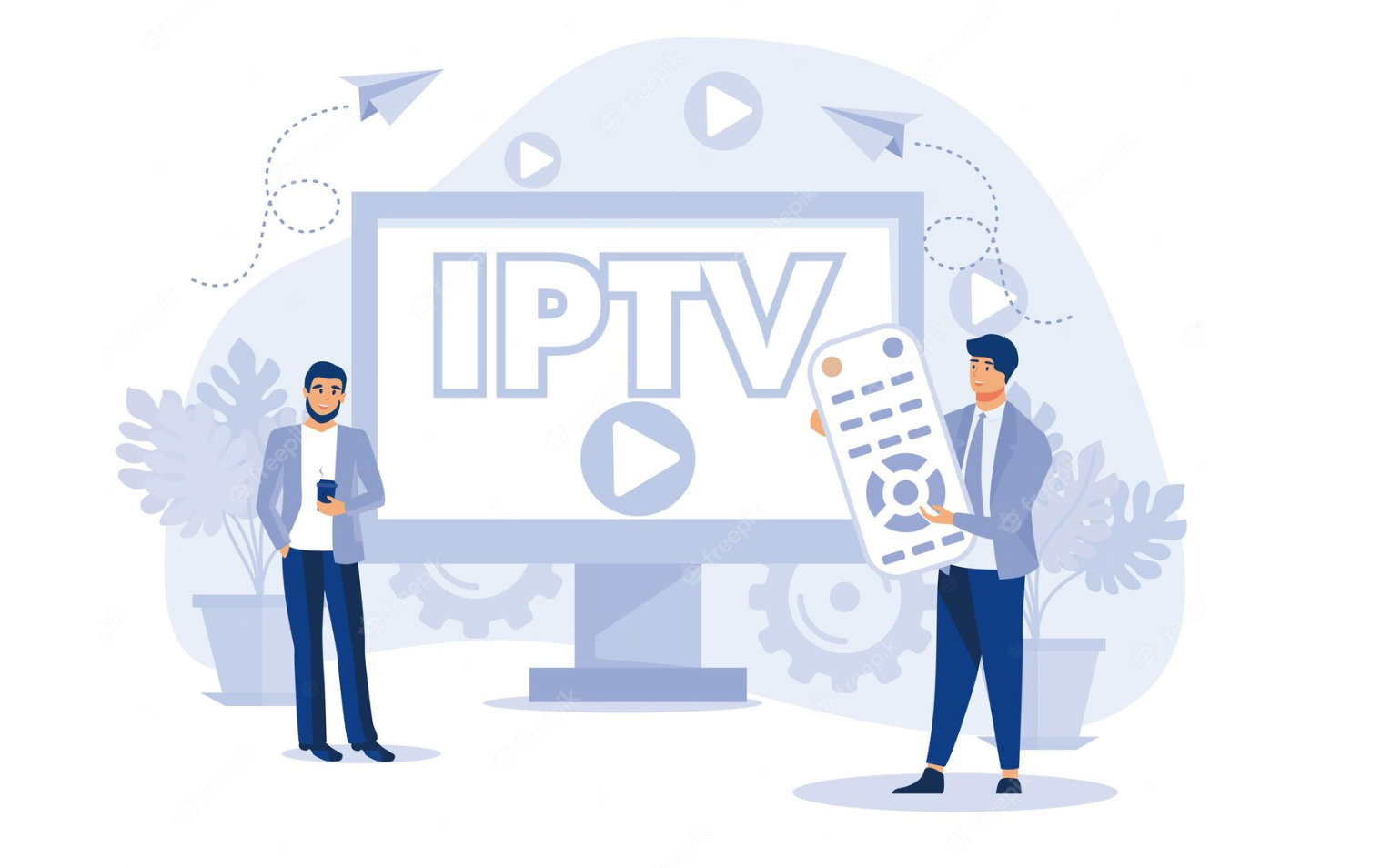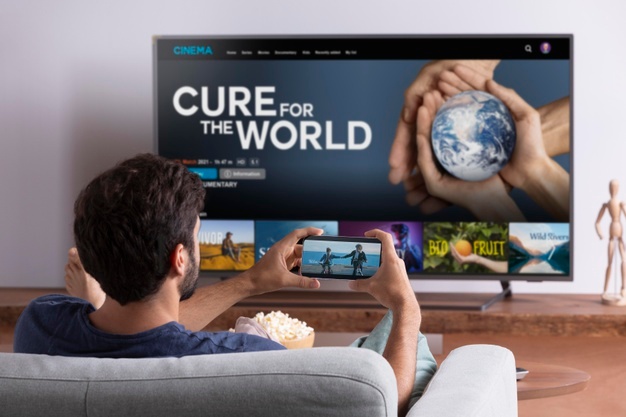Digital Marketing
PPC vs. Guest Post: Understanding the Strengths and Weaknesses of Both Strategies

Online marketing can sometimes feel like a puzzle. You’ve got different pieces like PPC, guest posting, and more. But how do they fit together? Think of PPC as paying for each visitor who clicks on your ad. On the other hand, guest posting is like writing a story for someone else’s website. Both methods can help bring more visitors to your site. This guide will make things clearer by explaining how each piece works. By the end, you’ll have a better idea of what might work best for you.
What is PPC?

Pay-per-click (PPC) refers to a digital marketing model where advertisers pay a fee each time their advertisement is clicked by a user. Rather than earning visits organically, advertisers use PPC to buy visits to their sites. The model is grounded on the principle of bidding for ad placement. For instance, if we consider search engines like Google, advertisers bid on keyword phrases relevant to their target audience.
When users enter a search query containing those keywords, the PPC ad might be displayed on the results page. If the user clicks on the ad, they are directed to the advertiser’s website, and the advertiser is charged a fee. This fee is determined by various factors, including the competitiveness of the keyword and the quality of the ad campaign.
The effectiveness of PPC is often measured by its Return on Investment (ROI). This is calculated by comparing the amount spent on the advertising campaign to the amount of revenue generated from those ads. A successful PPC campaign will not only generate clicks but will also ensure those clicks lead to meaningful actions, such as sales or sign-ups.
Advantages of PPC
1. Immediate Results
Unlike organic SEO methods which can take a while to bear fruit, PPC campaigns offer almost instantaneous visibility on search engine result pages. As soon as your campaign is live and properly set up, your ads can appear to potential customers. For businesses that require quick outcomes, say for a limited-time offer, PPC provides an invaluable tool.
2. Highly Targeted Traffic
One of PPC’s strongest advantages is its precision in audience targeting. Beyond just keywords, campaigns can be tailored for specific demographics, devices, times of day, and even types of behavior. For instance, a local bakery can ensure their ads are only seen by people within a 10-mile radius searching for cakes during business hours.
3. Budget Flexibility
Budgeting with PPC allows for a high degree of flexibility. If an ad performs exceptionally well, businesses can increase their budget to capitalize on that success. Conversely, underperforming ads can be adjusted or paused to save on costs. This dynamic budgeting approach ensures funds are always used optimally.
4. Measurable ROI
PPC platforms, like Google Ads, offer comprehensive analytics, allowing businesses to see exact data on how many people viewed their ad, clicked it, and took subsequent action on their site. This data-driven approach ensures that businesses know the precise return on every dollar spent.
5. Branding Benefits
Even when users don’t click, they still see your ad. This consistent visibility at the top of search results can boost brand recall and awareness. Over time, even if they don’t engage immediately, users become more familiar and likely to think of your brand when making relevant decisions.
6. Control Over Ad Campaigns
With PPC, advertisers aren’t at the mercy of a platform’s algorithm. They decide the ad’s content, its design, its placement, and most importantly, where it directs the user. This control ensures a consistent and tailored experience for potential customers, maximizing the chances of conversion.
7. No Dependency on SEO Changes
SEO landscapes can shift dramatically with any major search algorithm update. Websites might suddenly lose visibility due to these changes. PPC, however, remains unaffected, ensuring a stable and predictable source of traffic.
8. Protection from SEO Downfalls
If, for some reason, a website’s organic ranking takes a hit – perhaps due to SEO errors or search engine penalties – PPC campaigns can provide a reliable backup, ensuring the business retains its online visibility and continues to attract potential customers.
9. Serves Multiple Business Goals
From increasing newsletter sign-ups to selling products, PPC campaigns can be tailored to meet diverse business objectives. This versatility ensures that whether you’re an e-commerce platform, a blog, or a local service, PPC can be molded to serve your unique needs.
10. Easy Entry and Scalability
Starting a PPC campaign doesn’t require months of preparation. Even a new business can swiftly set up a campaign, test the waters, and then adjust. As a company grows or achieves better results, PPC campaigns can be seamlessly scaled up to reach a broader audience or target new markets.
Challenges of PPC
1. Cost
The bid amount for popular keywords can skyrocket, especially in competitive industries. Without a strategically crafted campaign, there’s a risk of incurring high costs with minimal returns.
2. Temporary Nature
The sustainability of PPC is directly tied to your budget. Once your campaign funding dries up, the influx of traffic ceases, making it imperative to maintain consistent funding.
3. Complex Management
Keeping a PPC campaign running smoothly requires regular oversight. Advertisers need to continuously monitor and adjust bids, ad copies, and landing pages for optimal performance.
4. Ad Blindness
Many internet users have grown accustomed to skipping over advertisements. Over time, this “ad blindness” can potentially reduce the effectiveness of your PPC ads.
5. Risk of Click Fraud
Some unscrupulous competitors might repeatedly click on your ads to exhaust your budget, a practice known as click fraud. This can rapidly deplete your funds without yielding genuine leads.
6. Platform Dependency
Relying heavily on a single platform, like Google Ads, means you’re at the mercy of their policies and algorithm changes. A sudden change could affect your campaign’s visibility or cost efficiency.
7. Steep Learning Curve
For newcomers, PPC can be intimidating. From understanding quality scores to mastering ad placements, there’s a lot to grasp, and mistakes can be costly.
What is a Guest Post?
A guest post refers to a piece of content authored by an individual who isn’t a regular contributor to a specific website or platform. Often, experts or influencers in a particular field write guest posts for sites other than their own to reach a broader audience, share expertise, and build relationships within their industry. While the host website benefits from diverse content and fresh perspectives, the guest author gains exposure and often a backlink to their own site, fostering mutual growth and collaboration.
Advantages of Guest Posting
1. Increased Visibility
Venturing into the realm of guest posting means breaking the confines of your regular audience. By publishing on renowned platforms, your content, ideas, and voice reach corners of the internet that may have been previously untouched by your brand. This expanded reach not only enhances your online visibility but also paves the way for newer interactions and connections.
2. Quality Backlinks
Backlinks are a linchpin of SEO. When you secure a guest post on a well-regarded website, the opportunity to link back to your site isn’t merely a nod to your platform; it’s a strong SEO signal. Such high-quality backlinks tell search engines that your site is credible and valuable, potentially boosting your ranking in search results.
3. Establishes Authority
By consistently contributing valuable insights on esteemed platforms, you are crafting an image of expertise. Readers begin to associate your name with trusted information, cementing your position as an industry leader. Over time, this trustworthiness translates into a stronger brand identity and reputation.
4. Builds Relationships
Beyond mere content, guest posting is about building bridges. It’s a symbiotic relationship where both the host platform and the guest contributor benefit. This mutual growth often leads to long-term collaborations, knowledge exchanges, and a network of industry allies.
5. Enhanced Writing Skills
Every platform has its unique style and audience. Adapting your writing to fit these variances pushes you to grow and evolve as a writer. Plus, feedback from varied editors sharpens your craft, making your future pieces even more compelling.
6. Diversified Audience Engagement
Each platform attracts its unique set of readers. By guest posting across different sites, you gain insights into the preferences, feedback, and behavior of multiple audience types, refining your content strategy in the process.
7. Traffic Boost
A well-crafted guest post is more than just information; it’s an invitation. When readers find value in your content, they often want more, leading them directly to your website. This organic flow of traffic is both high-quality and engagement-driven.
8. Feedback and Insights
Stepping outside your regular platform exposes you to fresh perspectives. This new audience, with their feedback and comments, offers a goldmine of insights. From constructive criticism to new content ideas, the learning never stops.
9. Portfolio Expansion
For content creators, variety is the spice of a portfolio. Guest posts, especially on diverse platforms, showcase your adaptability and breadth of knowledge. This diversified portfolio often becomes a persuasive tool when seeking new opportunities or collaborations.
10. Monetary Opportunities
Beyond the intangible benefits, guest posting can be financially rewarding. Many platforms compensate guest contributors. Furthermore, a standout guest post can open doors to collaborations, sponsorships, and other income-generating ventures.
Challenges of Guest Posts
1. Time-Consuming
Venturing into the domain of guest posting isn’t a walk in the park. It begins with extensive research to pinpoint suitable platforms, which align with your niche and content goals. Following this, crafting a compelling pitch, getting it approved, writing the actual post, and then undergoing a potentially stringent editorial review can consume a significant chunk of time. For many, this process can be daunting, especially if the outcome isn’t as expected.
2. Quality Requirements
The digital landscape is brimming with content, raising the bar for quality higher than ever. To stand out and make your guest post count, delivering top-tier content is paramount. This not only entails a well-researched and articulate article but also one that aligns with the host site’s ethos. Falling short in the quality department could mean rejection or, worse, a tarnished reputation.
3. No Guarantees
The uncertain nature of guest posting can be its most challenging facet. Investing hours into research, writing, and editing doesn’t necessarily translate into your post getting the green light. Even if your post does see the light of day, there’s no surefire guarantee it will captivate the target audience or drive significant traffic back to your site.
4. Brand Consistency
While adapting to the style of the host site, there’s a risk of diluting your own brand voice. Striking a balance between maintaining brand consistency and fitting into the host’s content framework is a tightrope walk, demanding careful consideration.
5. Intellectual Property Concerns
Once your content goes live on another platform, you might have limited control over its future use. There’s potential for your content to be repurposed, or in worst-case scenarios, plagiarized without proper attribution, leading to intellectual property challenges.
6. Dependence on Platform Metrics
Evaluating the success of a guest post often hinges on analytics provided by the host site. Limited or skewed access to these metrics can make it challenging to measure the actual impact of your content, from reach to engagement.
Which is Right for You: Pay-Per-Click or Guest Post?
1. Objective Clarity
The initial step in any marketing strategy is understanding your end goal. Do you want to burst onto the scene with immediate online visibility, potentially capturing quick sales or sign-ups? Or is your vision geared towards nurturing a brand presence that, over time, becomes synonymous with expertise and reliability in your domain? Distinguishing between these aspirations will guide your decision-making, ensuring you channel efforts and resources effectively.
2. Immediate Traffic Boost
Imagine igniting a rocket; that’s the kind of rapid response PPC can offer. Particularly effective for ephemeral campaigns, product launches, or time-sensitive promotions, PPC can propel your content or product to the forefront. By strategically allocating your budget and selecting pertinent keywords, your ad can command prime real estate on search results, inviting a flurry of clicks and engagements.
3. Targeted Promotion
One of PPC’s crown jewels is its precision targeting. Picture a scenario where you’re not just broadcasting to the world, but handpicking your audience. Want to target middle-aged fitness enthusiasts in a specific city searching for gym equipment? Or perhaps millennials who’ve recently browsed travel sites? PPC campaigns can be laser-focused, ensuring that your ads resonate with a specific, tailored audience, amplifying chances of conversion.
4. Budget Control
The fear of spiraling marketing costs is alleviated with PPC’s budgetary reins. You’re in the driver’s seat, determining daily or campaign-wise expenditure ceilings. This ensures your marketing remains within financial boundaries, making it adaptable for both fledgling startups and established giants. And with tools like Google Ads, you can even set limits on how much you’re willing to pay per click, giving you a firm grip on costs.
5. Measurable ROI
PPC stands out by offering real-time, actionable metrics. From the number of eyes that see your ad (impressions) to those who engage (clicks) and eventually convert (sales/sign-ups), every step is quantifiable. This granular insight is invaluable. It means you’re not shooting in the dark; you can continuously refine your strategy, tweak ad components, or reallocate your budget, optimizing for the best possible returns.
6. Short-Term Campaigns
When you’re about to unveil a groundbreaking product, entice customers with a fleeting discount, or drum up buzz for an imminent event, you require rapid, widespread visibility. This is where PPC shines. By bidding on high-impact keywords and optimizing your ad placements, PPC campaigns thrust you into the spotlight, ensuring your message resonates loud and clear exactly when it’s most pivotal.
7. Building Authority
Think of guest posting as a stage where you’re the main speaker. If you consistently deliver insightful, well-researched content on esteemed platforms, audiences start recognizing and valuing your voice. Over time, this doesn’t just reflect on you as an individual but elevates your brand’s standing. In a digital realm teeming with content, being perceived as a reliable thought leader can set you apart, making guest posting a cornerstone for authority-building.
8. Long-Term SEO Benefits
Beyond the immediate readership of a guest post lies a treasure trove of SEO benefits. Quality content can earn you a nod from search engines in the form of a backlink—a vote of confidence. As you accumulate these backlinks from trusted platforms, they act as endorsements, signaling to search engines that your site is a reservoir of value. This cumulatively uplifts your domain’s standing, paving the way for organic traffic growth and improved search visibility.
9. Credibility Through Association
The adage, “You’re known by the company you keep,” rings especially true in digital publishing. When your content graces the pages of a revered platform, there’s a transference of trust. Readers, familiar with the platform’s stringent content standards, inherently attribute that trustworthiness to you. This association is more than just fleeting recognition—it’s an amplification of your brand’s integrity and reliability.
10. Networking Opportunities
The journey of guest posting is akin to threading a web of professional connections. Each post is an outreach, a handshake extended to the host platform’s audience, editors, and even fellow contributors. As you consistently engage in this endeavor, you’re not just depositing content but cultivating relationships. These could blossom into collaborative ventures, mentorship, client leads, or a myriad of unforeseen opportunities that enrich your professional trajectory.
11. Sustainable Growth
Imagine planting a seed that grows into a tree, continuously bearing fruit season after season. This is the nature of guest posting. Unlike the ephemeral rush of PPC, where traffic correlates directly with ad spend and can wane once the campaign halts, guest posting offers enduring rewards. A well-constructed piece can magnetize readers, spur shares on social media, and remain relevant, acting as a perennial source of engagement and organic growth.
12. Diverse Audience Reach
Venturing into guest posting is akin to setting sail on diverse waters, each platform harboring its unique audience ecosystem. Every article you craft is a beacon, drawing readers from varied backgrounds, interests, and geographies. As you consistently guest post across multiple platforms, you’re not just disseminating information; you’re weaving a rich tapestry of engagement, broadening your brand’s reach and resonance across a mosaic of demographics.
13. Cost Considerations
Financial prudence is a cornerstone of effective marketing, and both PPC and guest posting come with their fiscal nuances. With PPC, there’s a tangible cost attached to every engagement, be it a click or impression.
Guest posting, on the other hand, often demands a different kind of currency: time, effort, and occasionally, monetary investment for sponsored placements or outreach endeavors. Yet, the dividends it pays, in terms of sustained traffic, brand credibility, and the organic amplification of your brand’s voice, often render it a worthy investment, paying rich long-term dividends.
Conclusion
both PPC and guest posts have their strengths and weaknesses. Your decision should align with your business objectives, available resources, and timeline. By understanding the nuances of each approach, you can make informed decisions and optimize your digital marketing efforts.

Digital Marketing
19 Digital Marketing Strategies To Grow Business in the UK

having effective marketing strategies is crucial for businesses to thrive and succeed. With the rapid advancements in technology, digital marketing has become an essential component of any successful business plan. This ultimate guide aims to provide you with a comprehensive overview of digital marketing strategies specifically tailored for the UK market. From search engine optimization (SEO) to social media marketing, we will explore the key strategies that can help you boost your online presence, increase brand awareness, and drive targeted traffic to your website.
The Importance of Digital Marketing
In today’s highly competitive business landscape, digital marketing plays a pivotal role in helping businesses stand out and reach their target audience effectively. With the majority of consumers now turning to the internet to research products and services, having a strong online presence is crucial. Digital marketing allows businesses to connect with their target audience, build brand awareness, drive website traffic, generate leads, and ultimately increase sales and revenue.
Digital Marketing Strategies To Boost Your Business in the UK

1. Search Engine Optimization (SEO)
SEO is a fundamental digital marketing strategy that focuses on optimizing a website to improve its visibility on search engine result pages (SERPs). It involves various techniques such as keyword research, on-page optimization, link building, and technical SEO to enhance a website’s organic ranking. By implementing effective SEO strategies, businesses can increase their chances of appearing on the first page of search engine results, driving organic traffic, and attracting potential customers.
2. Pay-Per-Click (PPC) Advertising
PPC advertising is a paid digital marketing strategy where businesses bid on keywords and pay a fee each time their ad is clicked. This method allows businesses to place their ads prominently on search engine results pages or other websites and only pay when a user clicks on their ad. It offers quick visibility and immediate results, making it an effective strategy for driving targeted traffic and generating leads.
3. Content Marketing
Content marketing revolves around creating and distributing valuable, relevant, and consistent content to attract and engage a clearly defined target audience. It includes various forms of content such as blog posts, articles, infographics, videos, and more. By providing valuable content that resonates with their audience, businesses can establish themselves as industry leaders, build trust, and drive organic traffic to their websites.
4. Social Media Marketing
Social media marketing involves leveraging social media platforms such as Facebook, Instagram, Twitter, and LinkedIn to promote products or services, engage with the target audience, and build brand awareness. With billions of active users on social media, businesses can tap into these platforms to reach a wider audience, create meaningful connections, and drive website traffic.
5. Email Marketing
Email marketing is a highly effective strategy for nurturing leads and converting them into customers. By sending targeted and personalized emails to subscribers, businesses can build relationships, promote products or services, and drive conversions. It is important to segment the email list, create compelling content, and optimize email campaigns to maximize the effectiveness of this strategy.
6. Influencer Marketing
Influencer marketing involves partnering with influential individuals or personalities in a specific industry or niche to promote products or services. By leveraging the credibility and reach of influencers, businesses can expand their brand reach, build trust, and increase their customer base. It is essential to identify relevant influencers who align with the brand values and target audience to ensure the success of influencer marketing campaigns.
7. Video Marketing
Video marketing has gained immense popularity in recent years, with platforms like YouTube becoming major hubs for content consumption. Businesses can create engaging and informative videos to showcase their products or services, share tutorials, or provide valuable insights. Videos have a higher engagement rate and can effectively convey messages, making them a powerful tool for digital marketing.
8. Mobile Marketing
With the increasing use of smartphones and mobile devices, mobile marketing has become a crucial aspect of digital marketing strategies. It involves optimizing websites for mobile devices, creating mobile apps, and implementing SMS or MMS marketing campaigns. By targeting mobile users, businesses can reach a wider audience and provide a seamless user experience.
9. Affiliate Marketing
Affiliate marketing is a performance-based strategy where businesses partner with affiliates who promote their products or services in exchange for a commission. It is a cost-effective way to expand the brand’s reach and drive sales. By leveraging the network of affiliates, businesses can tap into new markets and target specific audiences effectively.
10. Data Analytics
Data analytics is an integral part of digital marketing strategies, allowing businesses to gather valuable insights and make data-driven decisions. By analyzing user behavior, demographics, and preferences, businesses can optimize their marketing campaigns, personalize content, and target the right audience with the right message.
11. Conversion Rate Optimization (CRO)
CRO focuses on improving the conversion rate of a website by optimizing its design, user experience, and call-to-action elements. By conducting A/B testing, analyzing user behavior, and making data-driven changes, businesses can increase the likelihood of visitors taking desired actions, such as making a purchase or filling out a form.
12. Customer Relationship Management (CRM)
CRM systems help businesses manage and analyze customer interactions throughout the customer lifecycle. By leveraging CRM software, businesses can track customer behavior, preferences, and purchase history, enabling personalized marketing campaigns, efficient customer support, and effective customer retention strategies.
13. Marketing Automation
Marketing automation involves using software tools to automate repetitive marketing tasks, such as email campaigns, social media posting, and lead nurturing. By streamlining processes and delivering personalized messages at the right time, businesses can save time, increase efficiency, and enhance customer engagement.
14. Local SEO
Local SEO focuses on optimizing a website for local searches to attract customers in specific geographical areas. It involves strategies such as optimizing Google My Business listings, obtaining local citations, and garnering positive online reviews. For businesses targeting a local customer base, local SEO is crucial for driving foot traffic and increasing visibility within the local community.
15. Online Reputation Management
Online reputation management aims to monitor, manage, and improve a business’s online reputation. It involves strategies to address negative reviews, manage customer feedback, and maintain a positive brand image. By actively managing their online reputation, businesses can build trust, credibility, and customer loyalty.
16. Website Design and User Experience
A well-designed website with a seamless user experience is essential for digital marketing success. Businesses should focus on creating visually appealing websites that are easy to navigate, load quickly, and provide valuable content. A positive user experience leads to increased engagement, lower bounce rates, and higher conversion rates.
17. Competitor Analysis
Analyzing competitors’ digital marketing strategies can provide valuable insights and help businesses stay ahead in the market. By studying competitors’ strengths, weaknesses, and tactics, businesses can identify opportunities, refine their own strategies, and differentiate themselves from the competition.
18. Online Advertising
Online advertising encompasses various paid advertising methods such as display ads, social media ads, and native ads. By targeting specific demographics, interests, and behaviors, businesses can reach their ideal audience and increase brand visibility. Online advertising allows for precise targeting, measurable results, and the ability to adjust campaigns in real time.
19. Measuring and Monitoring Success
Measuring and monitoring the success of digital marketing strategies is crucial to understand what works and what needs improvement. Businesses can utilize tools like Google Analytics to track website traffic, conversion rates, and other key performance indicators. By analyzing the data, businesses can make data-driven decisions, optimize campaigns, and maximize their return on investment.
FAQs
1. How long does it take to see results from digital marketing strategies?
Digital marketing is an ongoing process, and the time it takes to see results can vary depending on various factors such as the industry, competition, and the specific strategies employed. While some strategies like PPC advertising can yield immediate results, strategies like SEO and content marketing require time and consistent effort to show significant results.
2. Do I need to hire a digital marketing agency for my business?
Hiring a digital marketing agency can be beneficial for businesses that lack the expertise or resources to implement and manage digital marketing strategies effectively. An agency can provide expert knowledge, save time, and deliver measurable results. However, it is essential to choose a reputable agency that aligns with your business goals and has a proven track record of success.
3. Which social media platforms should I focus on for my business?
The choice of social media platforms depends on your target audience and the nature of your business. Facebook is a popular platform with a wide user base, while Instagram is ideal for businesses with visually appealing products or services. LinkedIn is suitable for B2B businesses, and Twitter is great for real-time updates and engaging with customers. It is important to research and understand where your target audience is most active and tailor your social media strategy accordingly.
4. How can I measure the effectiveness of my digital marketing campaigns?
To measure the effectiveness of digital marketing campaigns, businesses can track key performance indicators (KPIs) such as website traffic, conversion rates, click-through rates, social media engagement, and return on investment (ROI). Tools like Google Analytics, social media analytics, and CRM software can provide valuable data to assess campaign performance and make data-driven decisions.
5. Are there any legal considerations in digital marketing?
Yes, there are legal considerations in digital marketing, particularly regarding data protection and privacy. Businesses need to comply with regulations such as the General Data Protection Regulation (GDPR) in the UK. It is important to obtain proper consent for collecting and using customer data, ensure secure data storage, and provide clear opt-out options for email marketing.
6. How often should I update my digital marketing strategies?
Digital marketing strategies should be regularly reviewed and updated to keep up with the evolving digital landscape and changing customer behavior. It is important to stay updated with industry trends, monitor campaign performance, and adapt strategies accordingly. Regularly evaluating and refining your strategies will help you stay ahead of the competition and drive continued growth.
Conclusion
Digital marketing strategies are vital for businesses in the UK to succeed in today’s competitive market. By implementing a well-rounded approach that combines SEO, PPC advertising, content marketing, social media marketing, and other strategies mentioned in this ultimate guide, businesses can effectively reach their target audience, build brand awareness, and drive conversions.
Digital Marketing
Reddit CEO to Microsoft and AI Search Engines: Pay for Our Content

Reddit’s CEO, Steve Huffman, has declared that the platform will continue to block search engines like Microsoft’s Bing and AI models from accessing its content unless they strike a content licensing deal. This decision is part of Reddit’s broader strategy to manage how its data is used and displayed.
Why Reddit is Blocking Search Engines?
Blocking these search engines has been a significant challenge, according to Huffman. He explained to The Verge the primary reasons behind Reddit’s decision:
- Control Over Data Usage: Without content licensing agreements, Reddit lacks control over how its data is used and displayed. Huffman emphasized the importance of having a say in these matters.
- Misconception of Free Use: Companies like Microsoft, Anthropic, and Perplexity operate under the assumption that all internet content is free for their use. Huffman criticized this stance, highlighting the need for proper agreements.
- Changing Value Exchange: The traditional value exchange from search engines, where crawling content was reciprocated with traffic, is evolving. The merging of search, summarization, and AI training has muddied this exchange.
The Freeware Argument
Microsoft’s AI CEO, Mustafa Suleyman, has referred to web content as “freeware,” suggesting that since the inception of the web, it has been understood that such content is fair use for anyone to copy and reproduce. This perspective contrasts with Reddit’s stance on content licensing.
Google’s Exception
Interestingly, Reddit has not blocked Google. This is because Google pays Reddit $60 million annually as part of a content licensing deal announced in February. This agreement allows Google to access and use Reddit’s content while providing Reddit with significant revenue.
Microsoft’s Response
A Microsoft spokesperson stated that Microsoft respects the robots.txt standard, which directs how web crawlers should behave. Following Reddit’s updated robots.txt file on July 1, Bing ceased crawling Reddit’s site, adhering to the prohibition against crawling.
Why This Matters?
Reddit’s move places it in a strong position, particularly with its lucrative deal with Google. This strategy not only secures revenue but also ensures that Reddit maintains control over its content usage. Other content producers and publishers might need to consider similar strategies to protect their data while leveraging the visibility and traffic from AI search engines. Implementing generative engine optimization (GEO) strategies could be vital for maintaining relevance and maximizing the benefits of AI-driven search technologies.
Summary
Reddit Blocks Search Engines: Reddit will block search engines like Microsoft Bing unless they agree to content licensing deals.
Control Over Data: CEO Steve Huffman emphasizes the need for control over how Reddit’s data is used.
Google’s Deal: Google is not blocked due to a $60 million annual content licensing agreement with Reddit.
Microsoft’s Compliance: Microsoft respects Reddit’s robots.txt file and has stopped crawling the site as per Reddit’s directive.
Impact on Publishers: Other content producers may need to adopt similar strategies to protect their content and maintain visibility.
Business
LinkedIn Rolls Out AI Assistant for Premium Members

LinkedIn is currently testing an AI assistant for its Premium members, integrating Microsoft’s advanced AI technology. This initiative marks LinkedIn’s first significant consumer-facing AI product, expanding beyond its traditional enterprise-focused services.
Why It Matters: This development places LinkedIn alongside other social platforms like Snapchat and Instagram, which have already introduced similar AI features. The move underscores a growing trend where social networks leverage AI to enhance user engagement and provide personalized experiences.
Background: Previously, LinkedIn launched several AI tools aimed at recruiters and job seekers, including AI-assisted candidate discovery and AI-powered coaching tools. The tease of a consumer AI assistant last year set the stage for this broader rollout to Premium users, which has been picking up pace in recent weeks.
Details of the AI Assistant: The AI assistant feature on LinkedIn prompts users to explore more about companies or topics mentioned in posts within their feeds. This feature combines insights from LinkedIn’s vast user base and data from Microsoft’s Bing search engine to deliver comprehensive information.
How Does It Work?
When users interact with a feed prompt, they’re directed to a chat interface where they can ask the AI assistant for further details. This interaction is labeled as “Powered by Bing,” ensuring transparency about the source of the information. The responses are tailored to the user’s professional background and skills, enhancing the relevance of the information provided.
Privacy and Personalization: The chat feature includes a disclaimer about its beta status and potential for errors, with a note that Microsoft’s privacy policy may apply. This is part of LinkedIn’s effort to maintain transparency and user trust as it rolls out new AI capabilities.
LinkedIn’s introduction of this AI assistant is just one part of a broader strategy to integrate more AI-driven tools into its platform. These tools are designed to connect users with relevant content and insights, potentially accelerating career growth and enhancing professional networking.
As AI technology continues to evolve, platforms like LinkedIn are finding innovative ways to harness these advancements to benefit their users. This new AI assistant for Premium members could transform how professionals interact with content and gather insights on LinkedIn, making it a critical tool for career development.
-

 Business3 years ago
Business3 years agoThe Most Efficient Ways To Use The Best 6 Business Keynote Presentations
-

 Apps and Software6 months ago
Apps and Software6 months agoStarbucks Partner Hours App Login Guide
-

 Entertainment6 months ago
Entertainment6 months ago15 Best IPTV Service Providers in the UK 2025
-

 Tech3 years ago
Tech3 years agoIs Forecasting A Part Of Data Science?
-

 Economy3 years ago
Economy3 years agoWhat does it mean to Dream About Pennies?
-

 Entertainment6 months ago
Entertainment6 months ago10 Best Free Video Player Apps For Apple TV
-

 Travel2 years ago
Travel2 years agoBenefits of UK Skilled Worker Visa for International Professionals
-

 Entertainment2 years ago
Entertainment2 years agoHow To Enhance Your Viewing with Video Subtitle Support










































